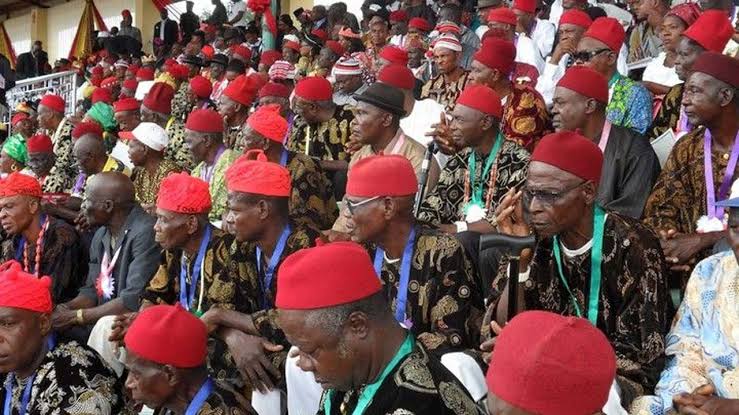There is no escaping the fact that all the ethnic nationalities of Nigeria are involved in the struggle for power. This did not start today because even before the attainment of independence in 1960 there was the deposition that Nigeria stood on a tripod of East, West and North. The East had a dominant Igbo population, but there were significant populations of the Efiks, Ibibios, Ijaws, Ogonis and others. Same in Western Nigeria that had the Yorubas as the dominating ethnic nationality but with significant population of the Binis, Urhobos, Itsekiris, Isokos, Ijaws, Eguns and others. Northern leaders then talked of “One North” even as the Hausa-Fulani dominated ethnic groups such the Kanuris, Tivs, Idomas, Jukuns, Nupes etc.
The Igbo people who lived in the hinterland back then were not as exposed as the ethnic groups living near the riverine that had early contacts with the Europeans. The Yorubas, the Ijaws, etc, had prominent university graduates while the Hausa-Fulani royalty already had dealings with the British monarchy.
It took the emergence of Dr. Nnamdi Azikiwe to rouse up the educational and political pursuits of the Igbo people. Azikiwe, popularly known as Zik, inspired seven intelligent sons of Igboland to gain higher education by sailing to the United States of America. The “Seven Argonauts”, as they came to be called, joined forces with Zik toward the enlightenment of the Igbo people in pre-independent Nigeria.
The germane aspect of Nigerian history was tangentially highlighted in Anambra State Governor, Professor Charles Chukwuma Soludo’s recent treatise entitled “History Beckons And I Will Not Be Silent”. The pity is that some people would rather miscue the essence by making it a partisan battle between Soludo and Peter Obi. The crux of the matter truly is situating the Igbo cause in the Nigerian polity from the past to the present.
It is against the background of the Igbo people not having sufficient numbers to go it all alone during the 1959 Independence Elections that Zik forged an alliance with Aminu Kano’s Northern Elements Progressive Union (NEPU). Given the way our geopolitics was unfortunately structured by the colonialists, it only made sense that a formidable alliance was the route to travel. The Northern People’s Congress (NPC) which ended up forming the government at independence in 1960 actually came last in the elections, if the popular votes were meant to count. The independence government was formed through a coalition of the NPC and the NCNC under Prime Minister Abubakar Tafawa Balewa, with Zik replacing the Queen as the Governor-General of the country. So, the Igbo people did not lose out. Zik became the country’s ceremonial President and Commander-in-Chief when Nigeria became a Republic in 1963.
After the creation of Mid-West Region, Zik’s ally, Dennis Osadebay became the Premier of the new region, so the Igbo were effectively in control of two of the then four regions of Nigeria. Then there was the coup and counter-coup in 1966 that led up to the gruesome civil war where our people lost everything.
The military regimes after the war, following the lead of the British, stacked favours such as more states, local governments, electoral wards, forged higher population in favour of the North. The military regimes turned this strategy into a tradition such that the country is now thoroughly lopsided as opposed to the reality on the ground before the coming of independence. It is a pity that people who count on themselves as enlightened Nigerians perennially gloss over this conditioned inequity.
It is now obvious that contemporary Igbo politicians have jettisoned the winning calculus that earned their forebears a seat on the Nigerian table. Rather than approach the peculiar geopolitical structure with a consensus building platform that puts Igbo people in a position of negotiation, a good number of our politicians prefer to go on a wild goose chase that is eventually unhelpful. This is why today the Southwest has shifted from being on the opposition to where we used to be.
It is an object lesson that Bola Ahmed Tinubu started out with the Alliance for Democracy (AD) party that cornered the Southwest before morphing into the All Progressives Congress (APC) that is now the ruling party in Nigeria.
What Soludo puts forward is that the Igbo people need to go into alliances to emerge as a force in the national scheme of things politically. For that to happen, there has to be a pan-Igbo conversation. Ad hoc measures will not help us.
Written by SIR PAUL NWOSU









Comments are closed for this post.